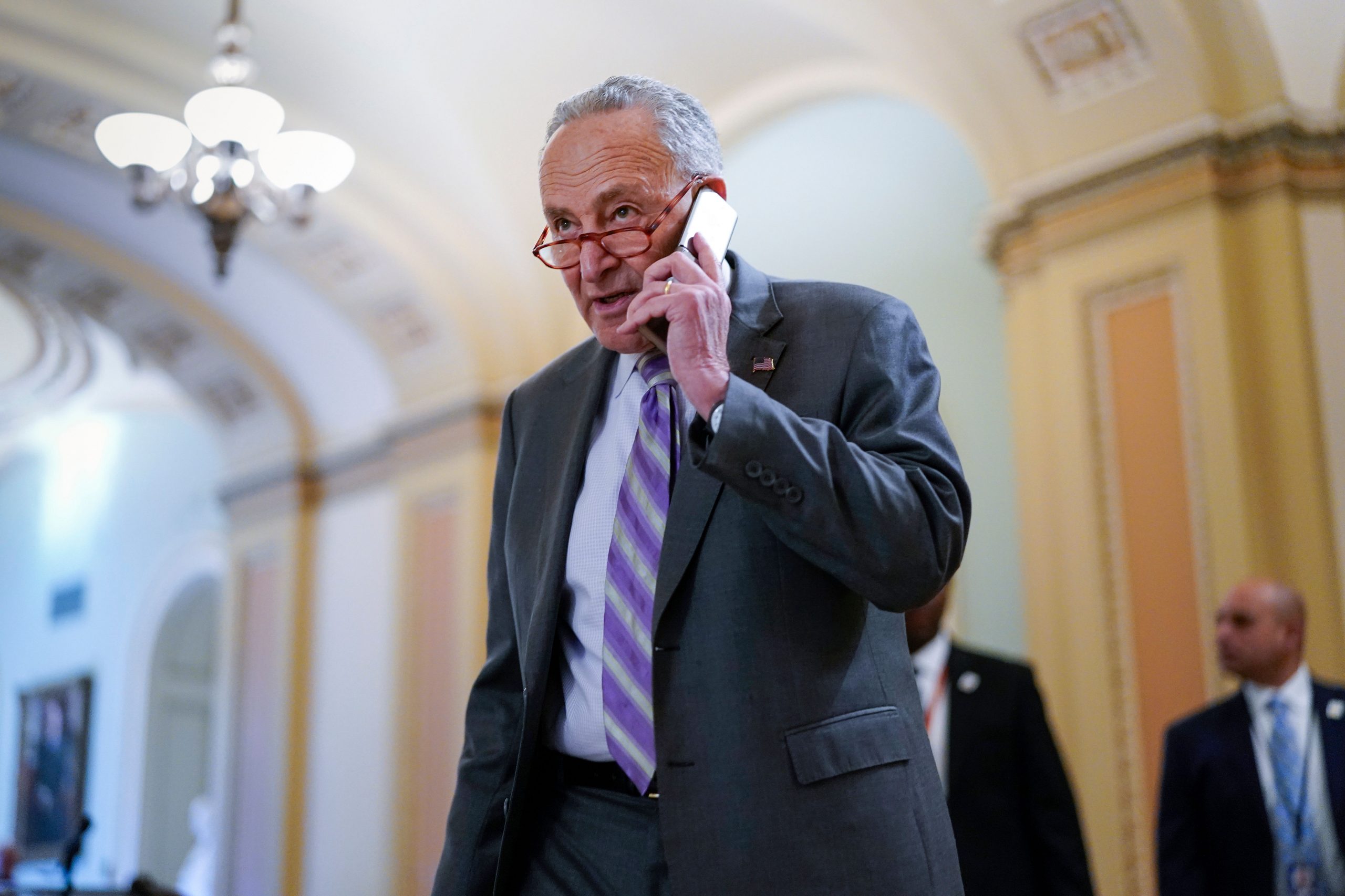A U.S. aid package for Ukraine and its Eastern European allies grew to around $14 billion on Tuesday as lawmakers put finishing touches on a $1.5 trillion government-wide spending bill that leaders hope Congress will enact by week’s end.
Democrats and Republicans rallied solidly behind the Ukraine aid, with Russia’s attack devastating parts of the country and prompting Europe’s worst refugee crisis since World War II. Negotiators said the package of military, humanitarian and economic aid to the region had grown close to $14 billion, up from $12 billion just Monday and President Joe Biden’s $10 billion request last week.
“We’re going to support them against tyranny, oppression, violent acts of subjugation,” Biden said at the White House.
Also Read: US shoots down Poland’s offer to assist MiG-29 fighter jets delivery to Ukraine
The bipartisan rallying behind the Ukraine aid package was just one manifestation of Congress’ eagerness to help that country, but not all of it has been harmonious.
Republicans accused Biden of moving too slowly to help Ukraine and NATO nations assisting it, and to impose sanctions against Russia and its president, Vladimir Putin. Democrats say time was needed to bring along European allies that rely heavily on Russian energy sources. And a bipartisan push to ban Russian oil imports had grown perhaps unstoppable before Biden announced Tuesday that he would do that on his own.
By dinner time Tuesday, lawmakers had still not released the overall bill, which would finance federal agencies this year and include the Ukraine aid. But details of the sweeping bill were beginning to emerge and its passage, probably in coming days, was not in doubt.
“War in Europe has focused the energies of Congress to getting something done and getting it done fast,” said Senate Majority Leader Chuck Schumer, D-N.Y.
Lawmakers had other motivations to approve the $1.5 trillion bill as well. Failure to do so by Saturday would prompt an election-year shutdown of federal agencies, a damaging blow that lawmakers were eager to avoid. And the legislation contained wins for both parties.
Democrats won around $15 billion for a fresh round of spending for vaccines, testing and treatments for COVID-19, including $5 billion for fighting the pandemic around the world. That was below Biden’s $22.5 billion request.
Republicans said they’d forced Democrats to pay for the entire amount by pulling back unspent money from past legislation. The money would come from previously approved spending for combating COVID and for helping states cope with pandemic costs, said one person who spoke on condition of anonymity because they weren’t authorized to discuss the legislation publicly.
Schumer said there would be money for Biden’s “Cancer Moonshot” to find a cure for the disease and for increasing Pell grants for lower-income college students. Still unresolved was whether to include programs protecting women against domestic violence and strengthening the country’s cybersecurity, Schumer said.
The overall measure was on track to increase overall defense and domestic spending over last year’s levels, though exact figures were not yet available. No. 2 Senate GOP leader John Thune of South Dakota said Republicans were happy with the boost for the military.
Senate Minority Leader Mitch McConnell, R-Ky., said the measure would provide loan guarantees to Poland to help it replace aircraft it is sending Ukraine. “It’s been like pulling teeth” to get Democrats to agree to some of the defense spending, he said. But he added, “It’s an important step. It needs to be passed. It needs to be passed quickly.”
Sen. Ben Cardin, D-Md., a sponsor of a bipartisan effort to win billions to help the pandemic-battered restaurant industry, said that initiative had not survived due to GOP opposition.
House leaders were hoping that chamber could approve the legislation on Wednesday, sending it to the Senate. Debate there could last days.
Also Read: IAEA loses remote contact with Chernobyl, heightens safeguard concerns
Top House Democrats were warning their members they might have to unexpectedly return to Washington on Friday night from the party’s political retreat in Philadelphia to approve the package or pass yet another short-term bill preventing a federal shutdown. Temporary financing for federal agencies expires at the end of the day Friday.
The timing on final passage, though likely within days, was unclear. Last week, eight conservative Republican senators wrote Schumer saying lawmakers “should not vote on it” until they’ve had time to read the bill and for a full study of its costs by the nonpartisan Congress Budget Office.
“There are some senators who won’t agree on anything, anytime, anywhere,” said No. 2 House Democratic leader Steny Hoyer, D-Md., “which is frustrating.”







